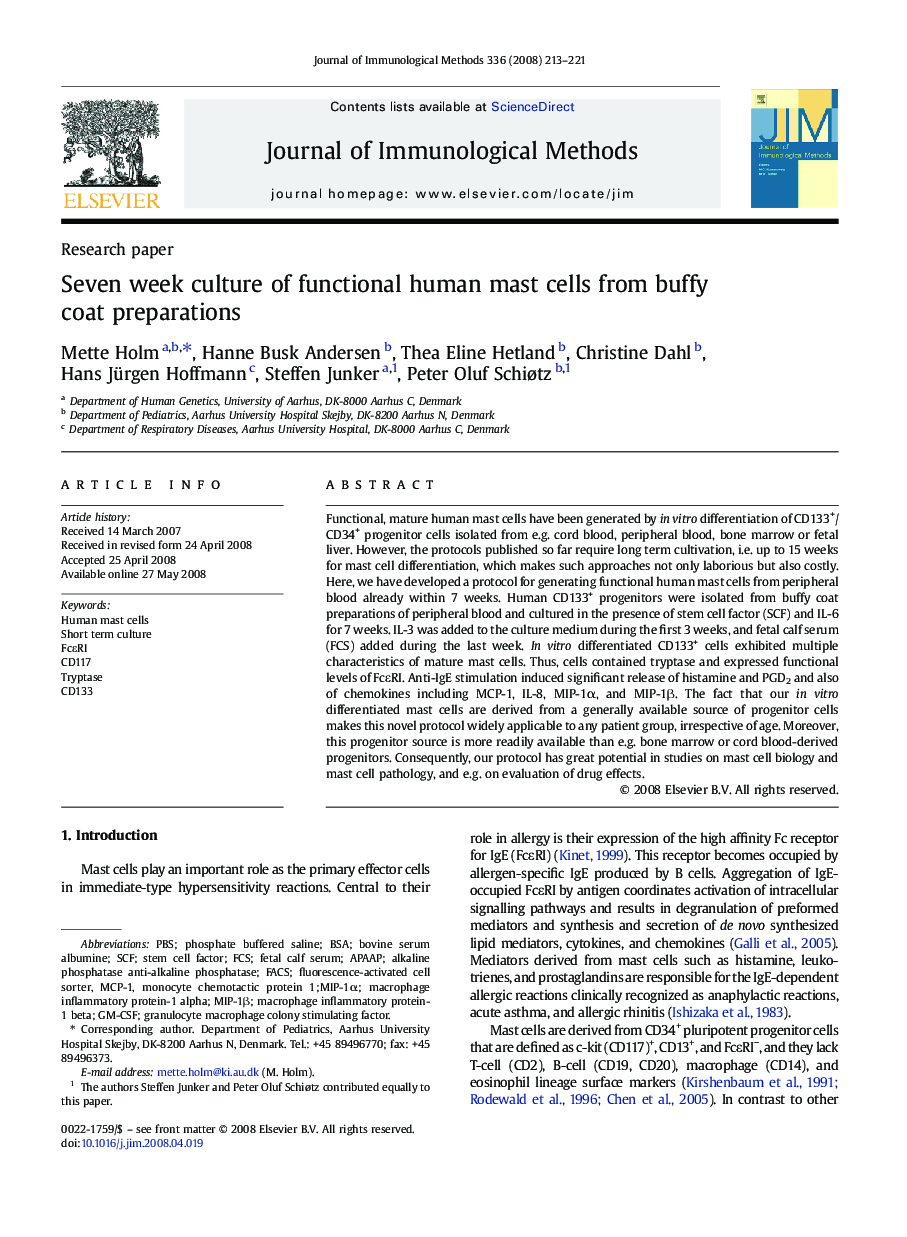| Article ID | Journal | Published Year | Pages | File Type |
|---|---|---|---|---|
| 10889335 | Journal of Immunological Methods | 2008 | 9 Pages |
Abstract
Functional, mature human mast cells have been generated by in vitro differentiation of CD133+/CD34+ progenitor cells isolated from e.g. cord blood, peripheral blood, bone marrow or fetal liver. However, the protocols published so far require long term cultivation, i.e. up to 15 weeks for mast cell differentiation, which makes such approaches not only laborious but also costly. Here, we have developed a protocol for generating functional human mast cells from peripheral blood already within 7 weeks. Human CD133+ progenitors were isolated from buffy coat preparations of peripheral blood and cultured in the presence of stem cell factor (SCF) and IL-6 for 7 weeks. IL-3 was added to the culture medium during the first 3 weeks, and fetal calf serum (FCS) added during the last week. In vitro differentiated CD133+ cells exhibited multiple characteristics of mature mast cells. Thus, cells contained tryptase and expressed functional levels of FcεRI. Anti-IgE stimulation induced significant release of histamine and PGD2 and also of chemokines including MCP-1, IL-8, MIP-1α, and MIP-1β. The fact that our in vitro differentiated mast cells are derived from a generally available source of progenitor cells makes this novel protocol widely applicable to any patient group, irrespective of age. Moreover, this progenitor source is more readily available than e.g. bone marrow or cord blood-derived progenitors. Consequently, our protocol has great potential in studies on mast cell biology and mast cell pathology, and e.g. on evaluation of drug effects.
Keywords
PBSAPAAPFACSMIP-1βFCSFcεRIGM-CSFSCFMIP-1αCD133CD117BSAbovine serum albuminealkaline phosphatase anti-alkaline phosphataseTryptasefetal calf serumhuman mast cellsGranulocyte macrophage colony stimulating factorStem Cell FactorPhosphate buffered salinemacrophage inflammatory protein-1 alphamacrophage inflammatory protein-1 beta
Related Topics
Life Sciences
Biochemistry, Genetics and Molecular Biology
Biotechnology
Authors
Mette Holm, Hanne Busk Andersen, Thea Eline Hetland, Christine Dahl, Hans Jürgen Hoffmann, Steffen Junker, Peter Oluf Schiøtz,
